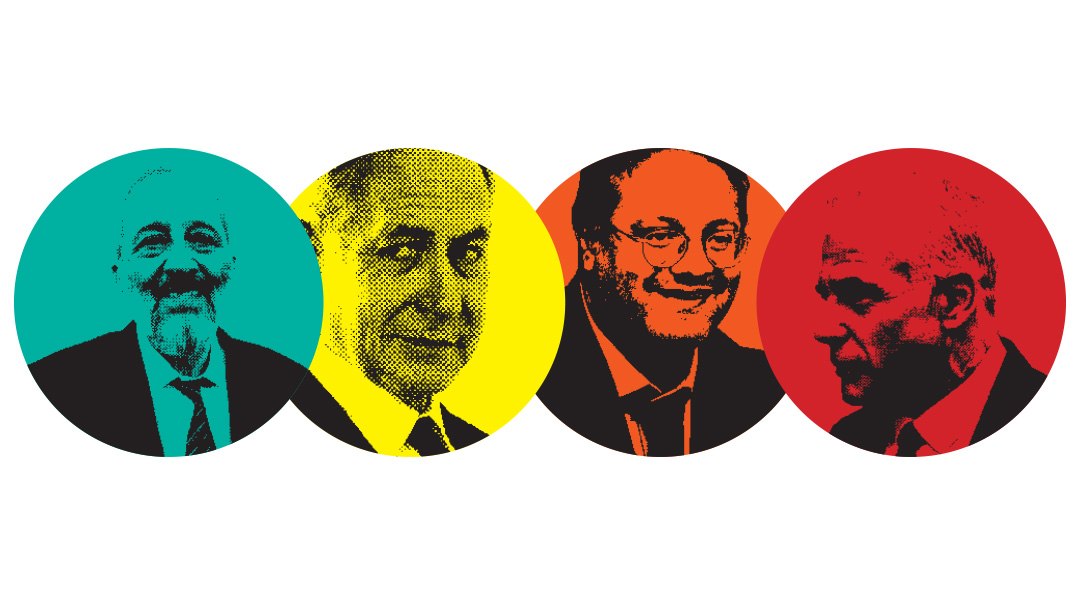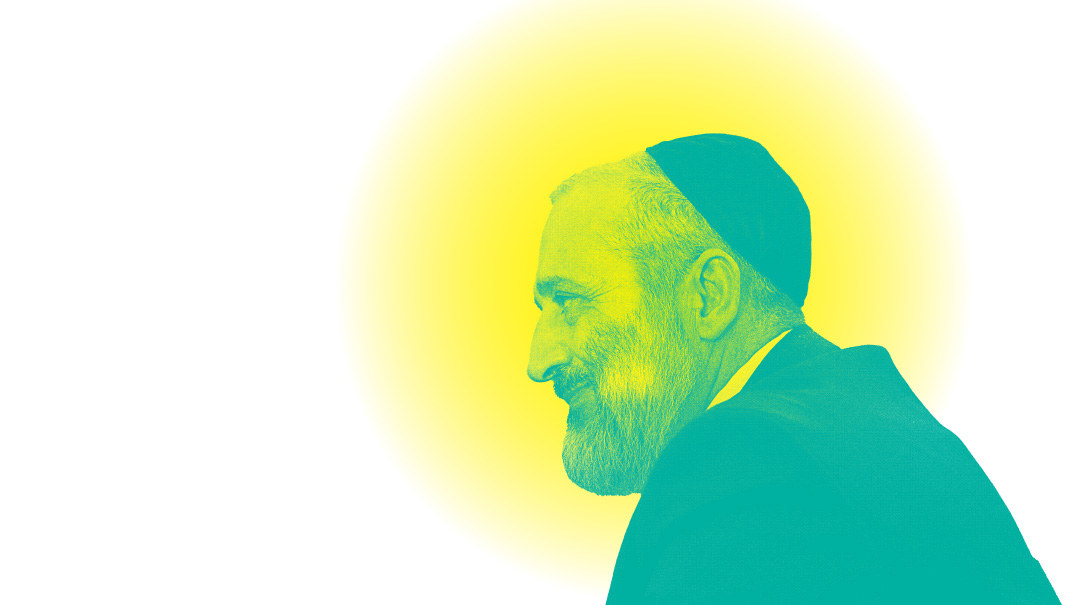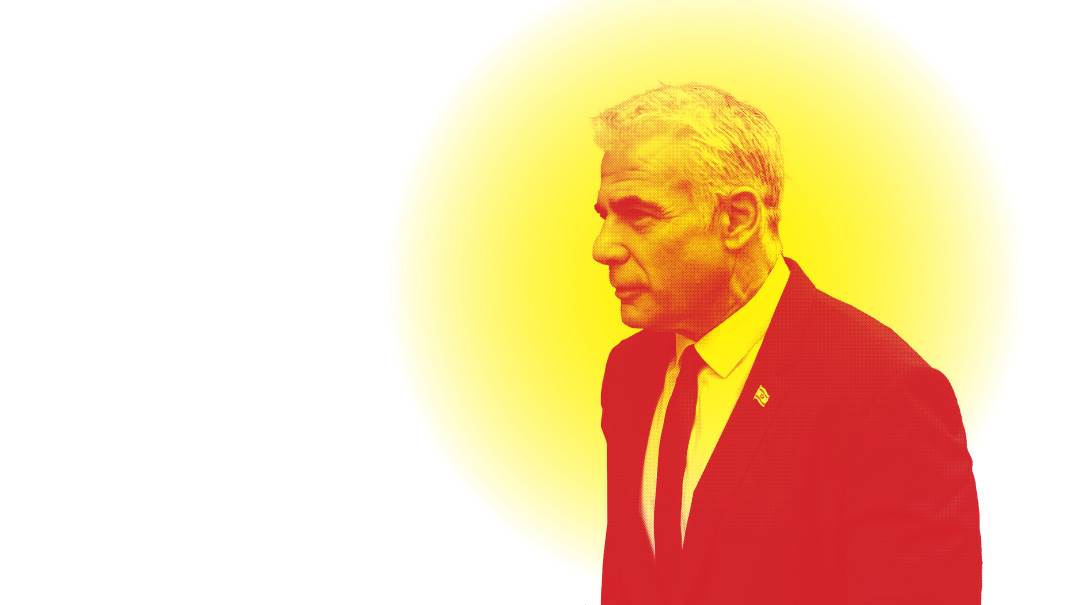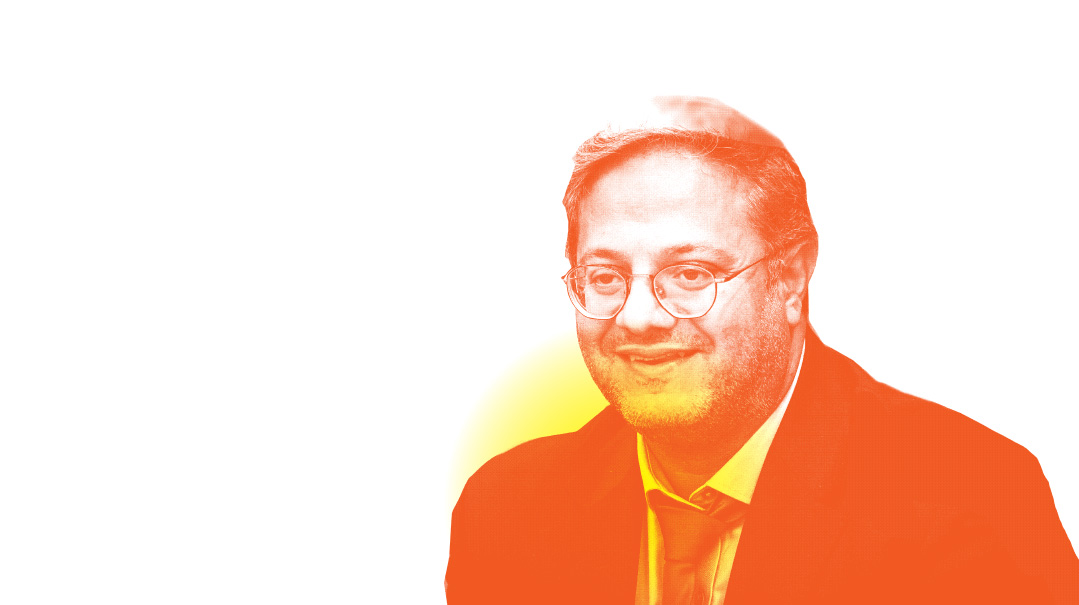Bibi’s Sharp Right

Much about the newest iteration of Bibi is new. The most notable change is his attitude toward issues of religion and state
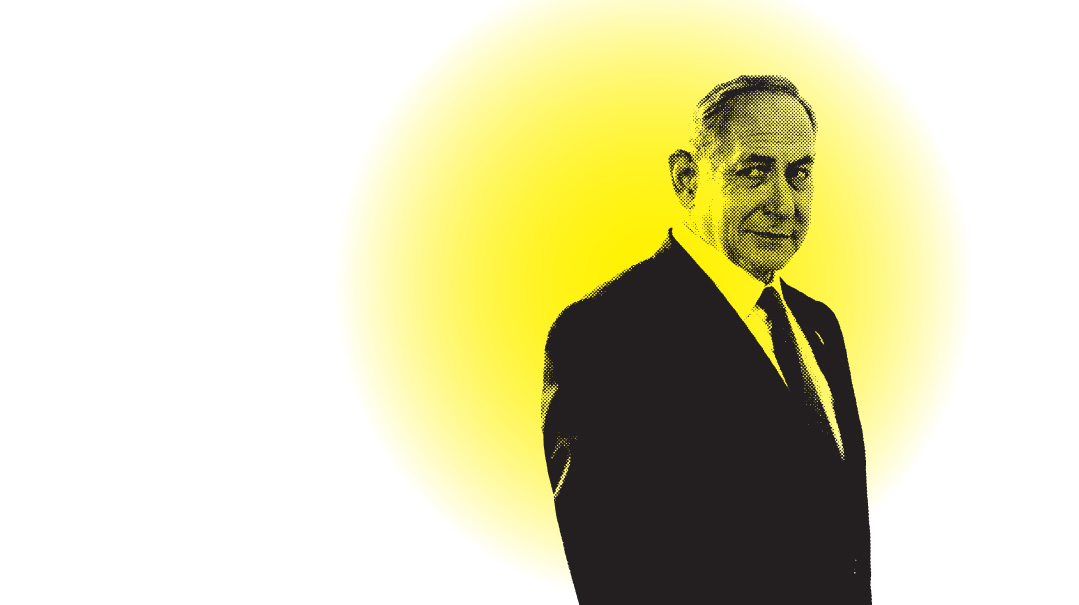
Bibi is back in power, and in some ways he hasn’t changed. He’s still the seasoned statesman and most experienced negotiator in any room. He’s still the stalwart champion of the Jewish People in their land, refusing to bend or show any weakness. And he’s still a calculated politician, a keen power player who crafts his personal brand and policy to his best advantage.
But in other, very consequential ways, much about the newest iteration of Bibi is new. The most notable change is his attitude toward issues of religion and state. The Bibi of the ’90s was supported by the chareidim as the leader of the right-wing bloc — a man with a very strong sense of Jewish identity and destiny — but was perceived as very far from the world of Orthodox Judaism in his personal life.
One anecdote repeated with a measure of derision over the years tells of Netanyahu’s first meeting with the chareidi political leadership of the day, at a Agudas Yisrael conference at the religious kibbutz Nir Etzion. The newly elected opposition leader made the trip from Jerusalem to northern Israel to give an impassioned speech and regale the chareidi representatives with a story about how his son Yair had come home from preschool, stood up on the couch, and started singing “Adon Olam.” The eye rolls in the audience said everything.
A few years later, during the 1999 election campaign (which he ultimately lost to Ehud Barak), Netanyahu was famously overheard whispering to Rav Yitzchak Kaduri ztz”l: “The left has forgotten what it means to be Jews.” The left and even some elements on the right pounced, portraying Netanyahu as a secular politician without a vestige of tradition who was putting on an act to maintain his political partnership with the chareidi and religious parties.
Avigdor Lieberman, then Bibi’s right-hand man and now his bitterest foe, once told me of the family dinners with Bibi’s father Benzion Netanyahu.
“He was a great lover of Zion and an eminent historian,” Lieberman said. “But let’s just say that kashrus wasn’t his strong suit, to put it mildly.”
Has Bibi changed his stripes? Or has he just made another strategic decision to embrace the religious right as his only ticket to continued political relevance?
A Different Context
Netanyahu’s status as the chareidi community’s most admired politician is not in dispute. The recent campaign only cemented this perception, with Netanyahu volunteering to heal the rift between the two factions of UTJ and later appearing at a rally-cum-lovefest in Bnei Brak with the aim of boosting chareidi turnout. Not since the days of Menachem Begin, the right’s first prime minister and the one who broke the left’s monopoly on power, has a mainstream politician been so admired by the chareidi, religious, and traditional sectors.
But Begin, unlike Netanyahu, was a man for whom Jewish tradition was his bread and butter. His conversation was laced with quotes from Chazal, and he was perceived as a shomer masoret, enjoying a natural bond with the chareidi and religious sectors. Bibi’s bond with his natural allies comes in a very different context.
Bibi cites his father Benzion Netanyahu, a student of Jabotinsky who drifted around the US after World War II promoting a Jewish state, as the Zionist leader he admires most. As a historian and academic, Benzion was undoubtedly an impressive figure by all measures, but he can’t be described as a man of tradition in any sense. The university milieu to which he belonged is one from which chareidim recoil.
In his autobiography Bibi: My Story, which was published on the eve of the elections and became an international bestseller, Netanyahu paints the scenes of his childhood with brushstrokes that would appeal to his current supporters in the religious right. But between the lines, one can’t help but notice what goes unmentioned: Standing out against the constant references to his grandfather Rav Natan Mileikowsky and his ancestor the Vilna Gaon, is his personal background as a product of a completely secular family.
Anyone who reads the Letters of Netanyahu’s brother Yoni, the Israeli hero who fell leading the Entebbe rescue operation, is exposed to the unfiltered reality of the atmosphere in which the man who returned to center stage this week as prime-minister-elect was raised. To understand how Netanyahu came all the way from there to become the undisputed leader of today’s proudly religious right-wing bloc, we have to follow him down the trail for over three decades, through highs and lows alike.
Paradoxical Popularity
Exactly a decade ago, I accompanied Netanyahu on a visit to Prague, the capital of the Czech Republic, along with ministers Ariel Atias, then considered a close confidant of his, and Rabbi Daniel Hershkowitz, at the time Jewish Home chairman, currently head of the Israeli civil service commission.
Bibi was then in his political prime, at the heart of the Israeli and international consensus. On the domestic front, Labor chair Ehud Barak, the man who had expelled him from the prime minister’s office in 1999, was serving as defense minister in his government. Yitzchak Rabin’s old rival Shimon Peres, the president, hosted the Netanyahu couple for a weekly dinner at his official residence.
On the international stage, Bibi’s star was on the ascent. On the eve of his visit to Prague, Time magazine awarded Bibi the most complimentary front page profile of his life, headlined “King Bibi.”
Bibi rode through the streets of Prague and was awarded a respect appropriate for an American president. The ancient city was closed down during the nights to enable Binyamin and Sarah Netanyahu to promenade between the lighted bridges at the end of a long day of meetings with European counterparts. It was then that Netanyahu was plotting the formation of a bloc of nations in the EU that would vocally support Israel and remove the Palestinian issue from the agenda.
At a late hour of the evening, we arrived alongside the Netanyahus at the medieval Altneuschul. Bibi didn’t come across as overly familiar with the interior of shuls, and seemed lucky to have ministers Atias and Hershkowitz at his side. Ariel Atias recited a kapitel of Tehillim while Rabbi Daniel Herschkowitz recited Keil Malei Rachachim to elevate the neshamah of Benzion Netanyahu.
When Bibi recited Kaddish, something changed in his voice, and it was apparent that it wasn’t only the Aramaic words that introduced a hint of hesitation into his baritone.
I asked Atias at the time how he accounted for the paradox of the irreligious Netanyahu’s popularity in the religious sector. Atias’s answer as someone who knew Netanyahu long and well was the most trenchant summary of his complex personality. “He’s well-liked in our circles because of his proud Jewish identity, grounded in deep historical knowledge and awareness — but the religious feeling is completely absent. That’s the background in which he grew up.”
The Same Boat
A few weeks before Succos, when Netanyahu was working round the clock to rebuild the lines in the right-wing camp, he arrived for a private meeting with a number of leading chareidi public figures.
Netanyahu worked night and day at the 11th hour to stave off a split in UTJ. At the same hour of the afternoon when Netanyahu was making his way to the meeting on Rothschild Boulevard in Tel Aviv, soon-to-be-former prime minister Yair Lapid was sitting at a table for two in a treif restaurant.
Even as Lapid ate and drank as if there were no tomorrow, Netanyahu climbed to the top of the Tel Aviv skyscraper above the restaurant and walked into the conference room, with its panoramic view of the reddish-brown rooftops of Neve Tzedek and the ever-renewing blue of the sea.
Bibi entered accompanied by his chief of staff Tzachi Braverman and ever-present chareidi advisor Ze’evi Fleischman. Waiting in the room were Chevron rosh yeshivah Rav Yosef Chevroni; the yeshivah’s menahel, Rabbi Shlomo Karlenstein; and the rosh yeshivah’s close confidant, businessman Shlomo Bronner. (Full disclosure: this writer was also present at the meeting, which was held in the offices of the Nevo Keidar Blum law firm.)
The meeting led the chareidi participants — who always knew to distinguish between Netanyahu the nationalist and the secular Bibi — to raise an eyebrow. This wasn’t the usual fare about his son Avner winning the International Bible Contest, or the fact that he reads the parshah with his son every week.
In the meeting, Netanyahu demonstrated sweeping knowledge of the Torah world and the history of the great yeshivos. It started when Rav Chevroni spoke of the historical roots of the Slabodka yeshivah, which was forced to leave Lithuania and resettle in Israel in 1924 due to the Lithuanian authorities’ interference in the curriculum.
“Essentially,” Rav Chevroni said, “we survived because we preserved the independence of our curriculum. This is a foundational principle of chareidi chinuch.”
Bibi listened attentively. “The surname ‘Chevroni’ assumes a new significance when you hear the story,” Netanyahu observed, and surprised his listeners by continuing the conversation ably. He demonstrated an impressive knowledge of the roots of the litvish yeshivah world, including nuanced subjects such as the differences between the various learning shittos.
“My family comes from there,” he said, adding that he had chassidish lineage as well.
Netanyahu closed the historical conversation with a dose of realism. “We all understand the importance of the Torah world,” he said. “And now you have a role to play — not a historical role, but a role in the here and now — in saving the Torah world. I’m not saying this for the sake of appearances, and I’m not saying this because of the political implications. We’re all in the same boat, because the current government has set out to destroy the Jewish character of the state and obliterate the Torah world.”
Something Has Changed
Bibi is a master of social media, and he calculates every frame and camera angle in advance. A video created for the recently completed campaign reflected the evolution of his support on the right and the importance that Bibi now places on religion.
For the first time since he burst on to the Israeli political scene a little over 30 years ago, Netanyahu was photographed in an overtly religious setting — in a Jerusalem shul, wrapped in a tallis — something he evaded so deftly in the past when surprised by Chabad shluchim.
“How do you live with the chareidi love for the secular Netanyahu? As someone who’s known him since the ’90s, has something changed?” I asked Shas chairman Aryeh Deri, one of the big winners of the Israeli election last week.
“Today when he talks about the importance of the Torah world and a Jewish state, I believe him,” Deri replied. “Because the gap between him and Lapid is vast. Lapid is trying to create a new version of Judaism, an empty, ignorant Judaism with Reform affinities and a ridiculous display of tefillin on Yom Kippur. Bibi may not be shomer mitzvos, but the Judaism that he knows and respects is our Judaism.”
It’s hard to say that this has always been the case. Just five years ago, Netanyahu originated the infamous Kosel compromise, and was suspected by the chareidim of trying to pander to his Reform friends in the US. These suspicions have been dispelled as Netanyahu has grown increasingly closer to the religious tribe and ditched his ties with the Reform communities, who have gone on to join the bloc that has made his ouster the be-all-and-end-all of Israeli politics.
Cynics will say that Netanyahu was and will remain completely secular, and as a master strategist who can tell where the political winds are blowing, his voter outreach has simply become more sophisticated over the years.
I asked Professor Avishay Ben Haim , an expert on the sociological roots of Israel’s secular-religious divide, whether it’s possible that it’s not only Bibi’s base that has increasingly equated being right-wing with religiosity, but that the bloc’s undisputed leader has changed as well.
“You can’t receive such enthusiastic support from the traditional, religious chareidi tribe without it changing something inside you,” Ben Haim feels. “In his hardest moments, when the entire system ganged up against him, this crowd demonstrated not only unwavering loyalty but also tremendous love for him. To me it’s clear that he himself changed as a result.”
No one can know what’s truly going on Bibi’s heart, but Netanyahu’s messaging in the recent campaign was certainly unlike anything we’ve heard from him in the past, with such pledges as restoring Tanach studies to the state schools, respecting the sanctity of Shabbos and Pesach, and preserving the values of a Jewish state. Instead of cheap slogans about “sharing the burden,” he voiced resounding and unapologetic views on the importance of the Torah.
Dr. Avishay Ben Haim feels that this is a strategy based on a fundamental understanding of the issues rather than a campaign ploy.
“Begin’s 1977 revolution wasn’t merely a political revolution,” says Ben Haim. “It ran much deeper than that. It was a cultural and ideological revolution about restoring G-d and religious belief to the heart of Jewish life and reclaiming our pride in the word ‘Jew.’ Netanyahu understood this. His recent campaign was an epic struggle against the Bennett-Lapid government, whose central aim was a rollback of the 1977 revolution in every area. Netanyahu stepped forward to lead the fight out of a deep conviction reminiscent of Begin’s, and very different from that of some the leftist Zionist leaders. The latter saw Jewish belief and believing Jews as a threat to the nationalist project, while Netanyahu and Begin see them as vital elements of a Jewish nation state.”
Bibi is the ultimate politician, and chances are we’ll never know his true feelings about his unabashedly religious coalition partners. But he’s come a long way in his support of religious ideals — and there’s no question that these days in Israel the faithful are very happy.
(Originally featured in Mishpacha, Issue 935)
Oops! We could not locate your form.

